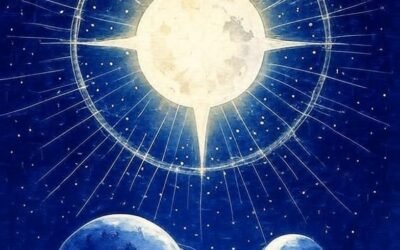Introduction: The Paradox of Indian Romance
In India, love is both a private longing and a public festival—celebrated in films, sung by poets, whispered in the corridors of ancient temples. And yet, unrequited love is a wound generations have carried quietly: a song unsung, a phone left unanswered, a promise that never comes. To be bitten in love is to know the sweetness—and the slow poison—of holding on when you must let go. The ache is universal, but it takes on a unique character in a land where devotion, duty, and dreams often clash.
If you feel stuck in the invisible grip of a woman you cannot have, this is your guide—not just to moving on, but to growing through the pain and returning to yourself, stronger and wiser.
1. The Nature of Love and Attachment
Love According to Indian Philosophy
Ancient Indian texts describe love (prem) as only one shade among many: there’s attraction (rati), affection (sneha), longing (viraha), and devotion (bhakti). Bollywood amplifies these flavors—think of Raj Kapoor’s tragic heroes, or Shah Rukh Khan’s eternal waits, or the melodies of A.R. Rahman that celebrate both union and separation.
Yet, just as the rivers eventually merge back into the ocean, so too must attachment dissolve when it starts corroding your inner peace.
Attachment and Karma
In the Bhagavad Gita, Krishna counsels Arjuna struggling with painful attachments:
“कर्मण्येवाधिकारस्ते मा फलेषु कदाचन। मा कर्मफलहेतुर्भूर्मा ते सङ्गोऽस्त्वकर्मणि॥“
“You have the right to your actions, but not to the fruits thereof.”
True love, according to this wisdom, isn’t possessive; when it starts to turn, we’re asked to gracefully renounce rather than cling.
2. Why the Bitten in Love Syndrome Hurts Deeper Here
The Imprint of First Love
In Indian culture, “first love” or a long-term crush often becomes mythic, retold through songs and stories (remember “Pehla Nasha” from Jo Jeeta Wohi Sikandar?). Such love imprints deeply on memory, and the desire for closure can be an endless loop.
Parental and Social Expectations
You may be bitten in love not just by your own emotions, but by unspoken fears:
- “What will people think if I move on so fast?”
- “Am I betraying her memory by seeking new joy?”
- “Isn’t true love about waiting—forever if necessary?”
These subconscious scripts are powerful, but also paralyzing.
The Shadow of Bollywood

Our films rarely show the courage of letting go. Instead, they lionize waiting, suffering, and even grand gestures for impossible love (think Devdas or Veer-Zaara). This perpetuates the myth that the greatest lovers never move on—but what about those who must, for the sake of survival?
3. Healing Wisdom: Ayurveda and Mind-Body Recovery
Traditional Ayurveda offers profound insights for healing when you’re bitten in love.
Emotional Healing through Ayurvedic Rituals
- Abhyanga (Self-Massage with Oil): Calms the nervous system, releases pent-up grief.
- Tulsi Tea: Revered for elevating mood, banishing mental “fog,” and soothing the heart chakra.
- Nasya (Aromatic Nasal Oil): Clears emotional blockages tied to memory—especially powerful before morning meditations.
Ritualize these as daily acts of self-love. Even a simple evening warm oil foot massage can relax the vata (anxiety) energy that increases during heartbreak.
Pranayama and Meditation
Breathwork (pranayama) is invaluable when you’re obsessing over memories. Try:
- Nadi Shodhana (Alternating Nostril Breath): Balances the two hemispheres of the brain, reduces emotional “agni” (fire).
- So-Hum Meditation: Inhale “So” (I am), exhale “Hum” (That)—dissolve your separate identity, even your attachment, into a higher source.
4. Indian Poetry and Folklore: Lessons from the Greats
India’s rich poetic heritage offers solace for the bruised lover.
Tagore on Letting Go
Rabindranath Tagore wrote:
“দিনান্তে সূর্যাস্ত দেখে, যদি তুমি অশ্রুসিক্ত হও; রাতের আকাশ ভালে তারাদের বন্ধু তুমি নও“
“If you are moved to tears by watching the sunset during the day, you cannot be a friend of the stars of the night sky.”
Meaning: By being bitten in love and unable to let go, you miss out on the new joys life has to offer.
Kabir: The Weaver’s Detachment
16th-century poet-saint Kabir advises:
“प्रेम-गली अति सांकरी, तामे दो न समाहिं । जब मैं था तब हरि नहीं, जब हरि है मैं नाहिं”
“Prem gali ati sankari, ta me do na samaye. Jab main tha tab Hari nahi, ab Hari hai, main nahi”
(“The lane of love is very narrow. Two cannot pass through it. When ‘I’ was, God was not; now God is, I am not.”)
Translation: Let go of your ego and the universe steps in to heal you.
Folklore and Stories
The stories of Mirabai, the Rajput princess who abandoned all for her love for Krishna, teach that the path of love often requires radical surrender not to a person, but to love’s greater mystery.
5. The Community Angle: How Indian Social Fabric Helps (and Hurts)
Community can both heal and deepen the wound.
- Joint Families: Sometimes shelter you but also remind you relentlessly of your loss.
- Friends: Indian friends might dismiss heartbreak with jokes (“Next!”), or plunge into deep analyses for hours over chai.
- Arranged Marriage Pressure: Moving on isn’t just about emotions, but also about navigating fresh parental matches and expectations.
The key is to choose your confidants wisely—seek out those who offer comfort and respect your boundaries. Sometimes, a professional therapist is more compassionate than a family elder misapplying “practical advice.”
6. Step-by-Step Rituals (with Indian Flavor)
Step 1: Sankalp (Intention Setting)
Like an ancient vow, declare:
“From today, I choose to release this attachment for my highest good.”
Light a lamp in your puja space, write the intention, and read it every morning for 21 days.
Step 2: Emotional Fasting – The Indian Digital Detox
- Mute her on WhatsApp.
- Hide her social feeds (Instagram, Facebook).
- Give yourself symbolic “vrat” (fast) from visiting places you went together—at least for a lunar cycle (1 month).
Step 3: Channel Grief Creatively
- Pen poems about pain—think of Sahir Ludhianvi’s timeless heartbreak lyrics.
- Sketch kolams or rangoli: transform your emotions into temporary, beautiful art.
- Learn a new skill (classical music, yoga, data science).
Step 4: Give Back
Service is sacred:
- Volunteer at a local gurudwara, old age home, orphanage.
- Organize a community clean up.
Serving shifts focus from heartbreak to healing—and is a classic Indian path for overcoming self-absorption.
7. Modern Meets Traditional: Tech-Supported Recovery
- Use meditation apps (Wysa, InnerHour, Headspace) with guided sessions in Indian languages.
- Create a gratitude WhatsApp group—share daily something new you’re grateful for, no repeats, no mentions of her.
- Follow Indian therapists and motivational speakers on Instagram (Devdutt Pattanaik, Shivani Didi, Gaur Gopal Das).
8. Embracing New Love—The Indian Way
- Don’t rush into “rebound” proposals.
- Attend community events, not partner-hunting but as self-discovery.
- Accept that arranged or “introduced” matches can bring unexpected happiness, but must be entered freely, not from the shadow of past attachments.
9. Bollywood, Tollywood, and Hyderabad’s Own Wisdom
Legendary Dialogue:
From the Telugu film Geetha Govindam:
“కలవరించడం లో కష్టం ఉండాలి కానీ వదిలేస్తే కష్టంలో ఆనందం ఉంటది”
“Kalavarinchadam lo kashtam undali kani vadilesthe kastamlo anandam untadi”
(“Separating from someone is painful, but releasing them brings joy in the pain.”)
The Sufi Dargahs and Charminar
Take inspiration from Hyderabad’s syncretic soul: visit an old Sufi dargah, make a quiet wish, feel your prayer join millions over centuries—carrying heartbreak away like the wind that rustles through the arches of Charminar itself.
10. Red Flags: When Suffering Turns Unhealthy
If you notice:
- Obsessive thoughts for months
- Neglect of work, health, or hygiene
- Suicidal feelings
…it’s time to seek professional help.
Contact a counselor, therapist, or even a trusted teacher or elder. This is strength, not weakness.
11. From Bitten to Better: Identifying Growth
- You have fresh career ambitions (that AI/Data Science course, a personal blog, Hyderabad community project).
- You laugh, really laugh, with friends without thinking about her.
- You feel compassion for her, not longing.
12. Ayurvedic Recipe for a Healing Drink
Try this at home:
- 1 cup hot milk (or oat/almond if vegan)
- Pinch of turmeric
- Crushed cardamom
- A few saffron strands
- 1 tsp honey
Focusing on your senses while sipping this “golden milk” signals to your body: you are nurturing yourself, deserving of warmth and sweetness.
Closing Thoughts: Love Doesn’t End, It Transforms
Hyderabad is a city with a thousand stories. Yours is one among them, and your heartbreak today will become someone else’s hope tomorrow—because every healed heart becomes a guide for another who is still, for now, “bitten in love.”
Remember—whether it’s through the teachings of the Gita, a qawwali at a dargah, a poem by Tagore, or your nightly journaling ritual, you are not alone. Love is an energy; and when unreturned, it is yours to reclaim, to transmute from wound to wisdom.
You are not your heartbreak. You are the love that remains, the courage to start anew, and the wisdom gathered by letting go.
Be gentle with yourself. After all, the mango tree sheds every leaf before blooming again. May you too, in time, blossom even more brightly—bitten in love, but now blessed by wisdom.





0 Comments